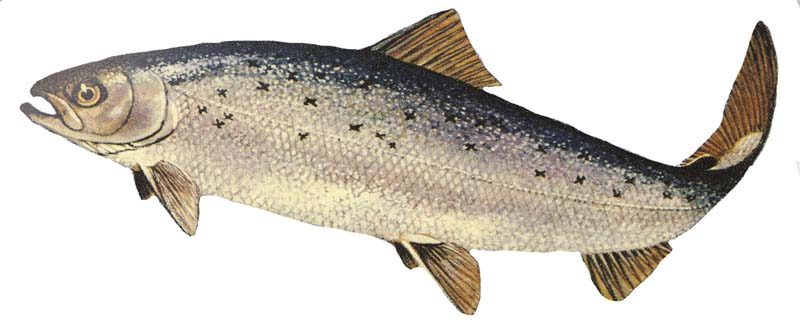Science News
Frankenfish

The New York Times reported earlier this week that the FDA is considering approving genetically modified salmon for our dinner plates. The salmon would grow to normal size in half the time using a little fish voodoo magic. According to the Times:
It is an Atlantic salmon that contains a growth hormone gene from a Chinook salmon as well as a genetic on-switch from the ocean pout, a distant relative of the salmon.
That on-switch would allow the fish to grow year-round, something that’s usually hard for salmon to do, given the cold winter weather.
Now the FDA needs to “analyze whether the salmon are safe to eat, nutritionally equivalent to other salmon and safe for the environment… A public meeting to discuss the salmon may be held as early as this fall.”
Genetically modified crops are a fact of life, but genetically-engineered animals have only recently come onto the scene. Some scientists are thinking about mad-cow resistant cattle and healthy bacon, and one Canadian company is trying to develop pigs that have less-polluting poop. If the FDA approves the genetically-modified salmon, it might open the door for other animals.
The “80beats” blog in Discover points out that with our eating habits, something has to be done to boost the salmon population—they’re just not sure that these GM fish are the answer:
…even normal farmed fish that escape can harm wild populations. It’s a good thing these new ones will all be sterile so they can’t interbreed, but they seem prime candidates for unexpected consequences.
Aaron Pope, Manager of Sustainability Programs here at the Academy, agrees:
The vast majority of current salmon farming methods are environmentally very damaging, and totally unsustainable. You can find more info at the Monterey Bay Aquarium Seafood Watch site, but major problems include the fact that it takes three pounds of caught fish to produce one pound of farmed fish (and we don’t exactly have lots of fish to spare in the ocean at the moment), and the diseases that are released into the wild from the farms. There are some promising advances happening in fish farming, but we are a long ways from large-scale, sustainable aquaculture at the moment.